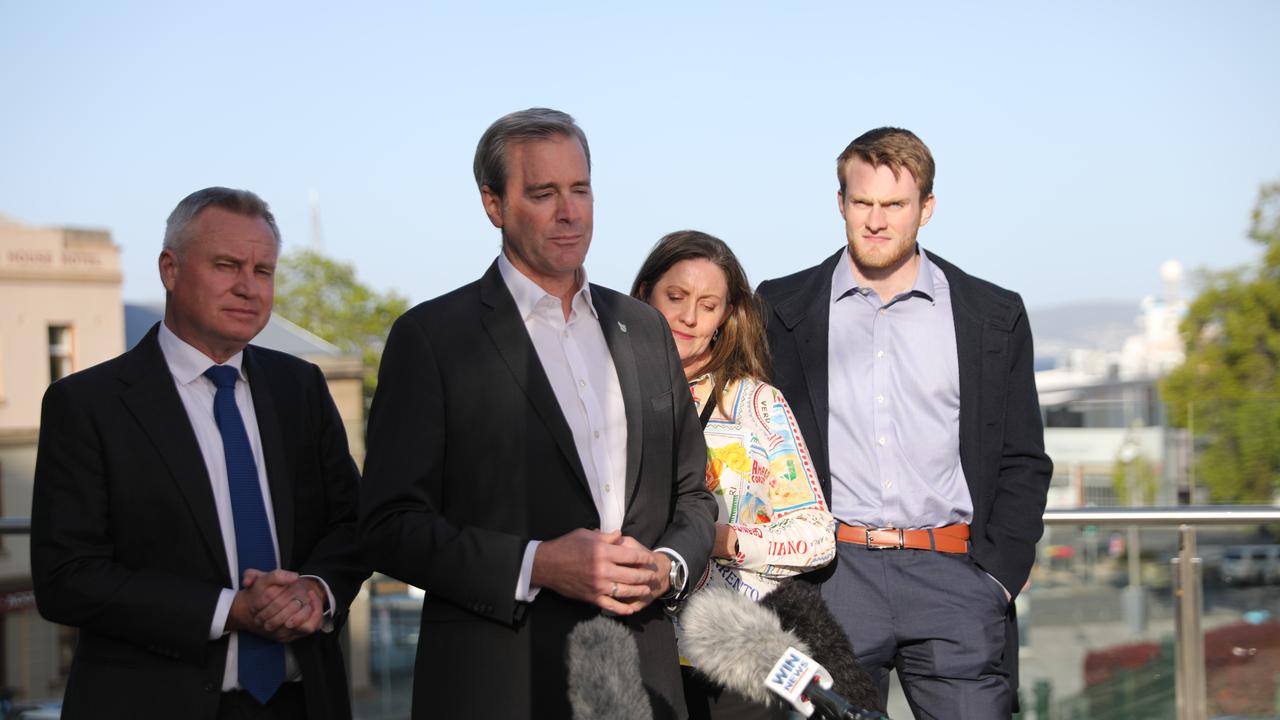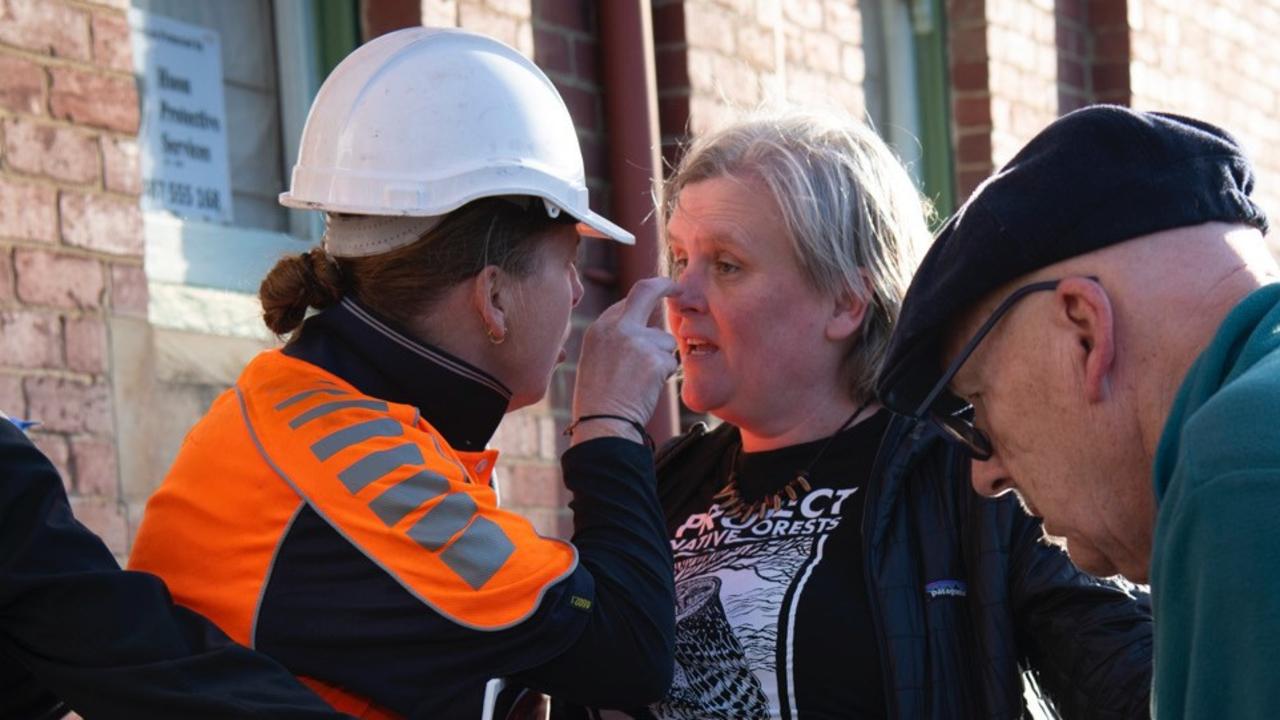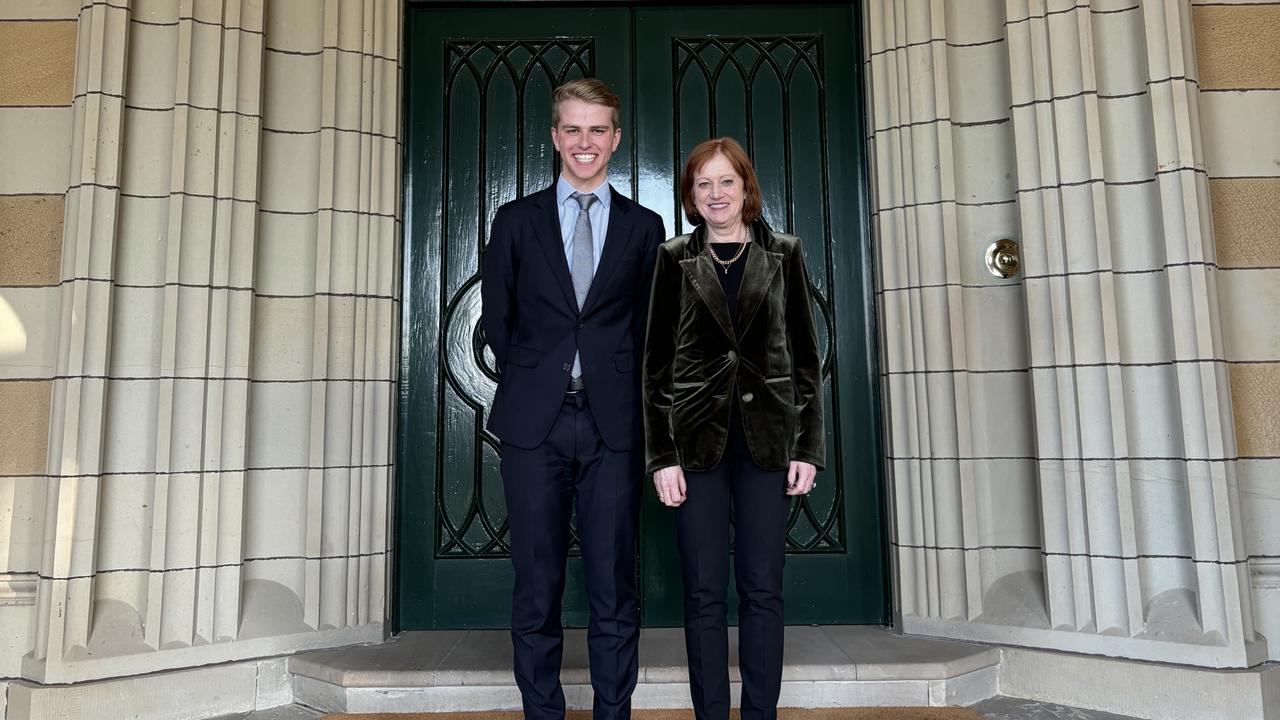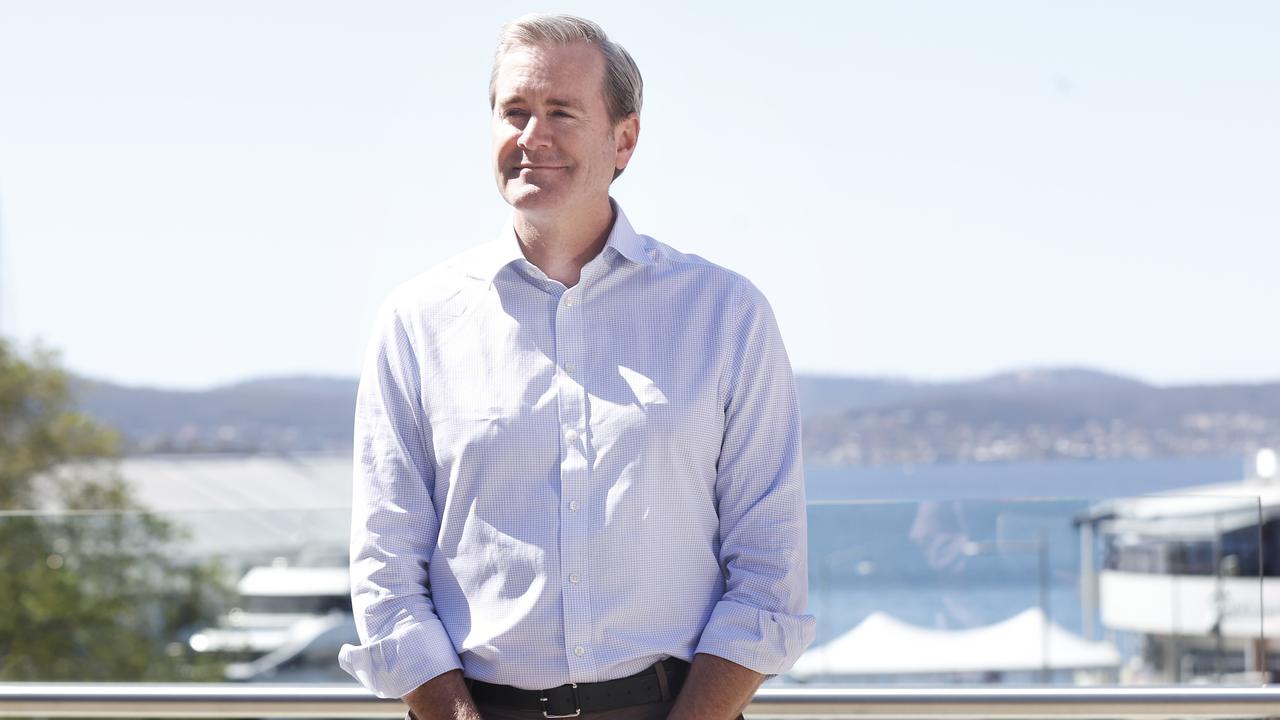Commissioners to consider whether there’s been a child abuse cover-up in Tasmania
Is Tasmania contaminated by a culture of “plausible deniability” – where bureaucrats and bosses have been able to pretend they didn’t know child sexual abuse had occurred directly under their noses? LATEST FROM THE COI >>>

Tasmania
Don't miss out on the headlines from Tasmania. Followed categories will be added to My News.
IS TASMANIA contaminated by a culture of “plausible deniability” – where bureaucrats and bosses have been able to pretend they didn’t know child sexual abuse had occurred directly under their noses?
Have there been “cover-ups” – particularly at the Launceston General Hospital – about what those at the top of the food chain had known about paedophiles working in the system?
Are there state government employees whose actions, or inactions, may be deemed as professional misconduct?
On Tuesday, eight weeks of public hearings for the Commission of Inquiry into the Tasmanian Government’s Responses to Child Sexual Abuse in Institutional Settings – spread out from May to September – finally drew to a close.
In that time, the commission heard evidence from 165 witnesses – including painful and harrowing accounts from child sexual abuse victim-survivors – as well as the people who were responsible for their safety.
In her closing address, counsel assisting the commission, Elizabeth Bennett SC, said an emerging theme over the past week was the failure to provide senior leaders with “accurate and fulsome critical information” – and “whether or not this contributes to a culture of plausible deniability”.
“These are serious matters, Commissioners, which will require further consideration by you over the coming months, including as it relates to the individual responsibility of some,” she said.
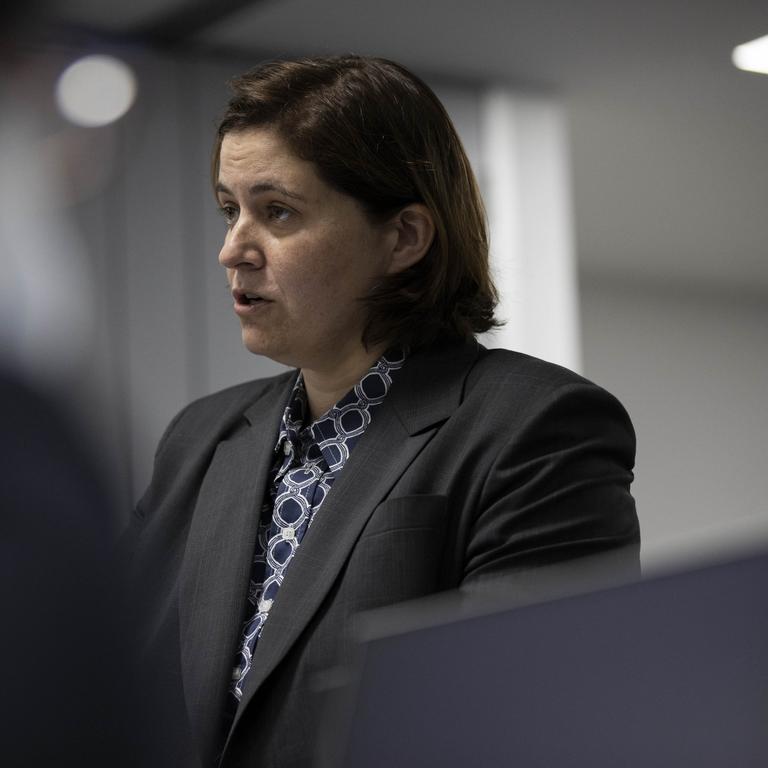
Ms Bennett mentioned Patrick Ryan, the former Ashley Youth Detention Centre manager, and his knowledge of an alleged abuser who worked on-site, the alleged sexual assault of a young boy by two detainees, and the use of isolation.
“Commissioners, these matters raise serious concerns about conduct, including the conduct of Mr Ryan, which you may wish to consider closely,” she said.
Ms Bennett also mentioned evidence given over the past week by Peter Renshaw, Launceston General Hospital’s executive director of medical services, who publicly proclaimed he didn’t believe a rape allegation by then-11-year-old Zoe Duncan.
Ms Bennett said the commission had heard how the LGH had also “failed to record and pass on critical information”, from and between Dr Renshaw and HR manager James Bellinger regarding knowledge of paedophile nurse, James Geoffrey Griffin.
“A lack of transparency and accountability in the response led by Dr Renshaw eroded staff and community trust in the LGH’s and the department’s response,” Ms Bennett said.
“It might – it may be open to the Commissioners to find – invited suspicions of a deliberate cover-up, something both Mr Bellinger and Dr Renshaw deny.”
Ms Bennett said the commission shared the hope expressed by victim-survivors that what would follow from the hearings would be “meaningful and tangible change, not just another inquiry”.
The commission will provide its final report and recommendations to the Governor of Tasmania in May next year.
Thirteen more department of education employees stood down
AN ADDITIONAL 13 Department of Education staff have been stood down since secretary Tim Bullard last appeared before the child sexual abuse commission of inquiry in May.
On Monday, as Mr Bullard reappeared before the commission, he revealed most of the staff members in question had been accused of “inappropriate touching or inappropriate language … between a teacher and a pupil”.
He said the new allegations came from members of staff or students raising concerns, rather than arising from a “wholesale review”.
“While for some that may be shocking, that in the short period of time … we’ve had 13, I actually take heart in it,” he said.
Mr Bullard said it showed people were “getting the message” to report any concerning actions of colleagues, and that children and young people were feeling they had “agency” to raise matters of concern.
As of October 1, Mr Bullard will become secretary of the new “mega-department” – the Department of Education, Children and Young People – which will have responsibility for all of Tasmania’s 100,000 children.
The department will encompass child safety, out-of-home care, public education and youth justice.
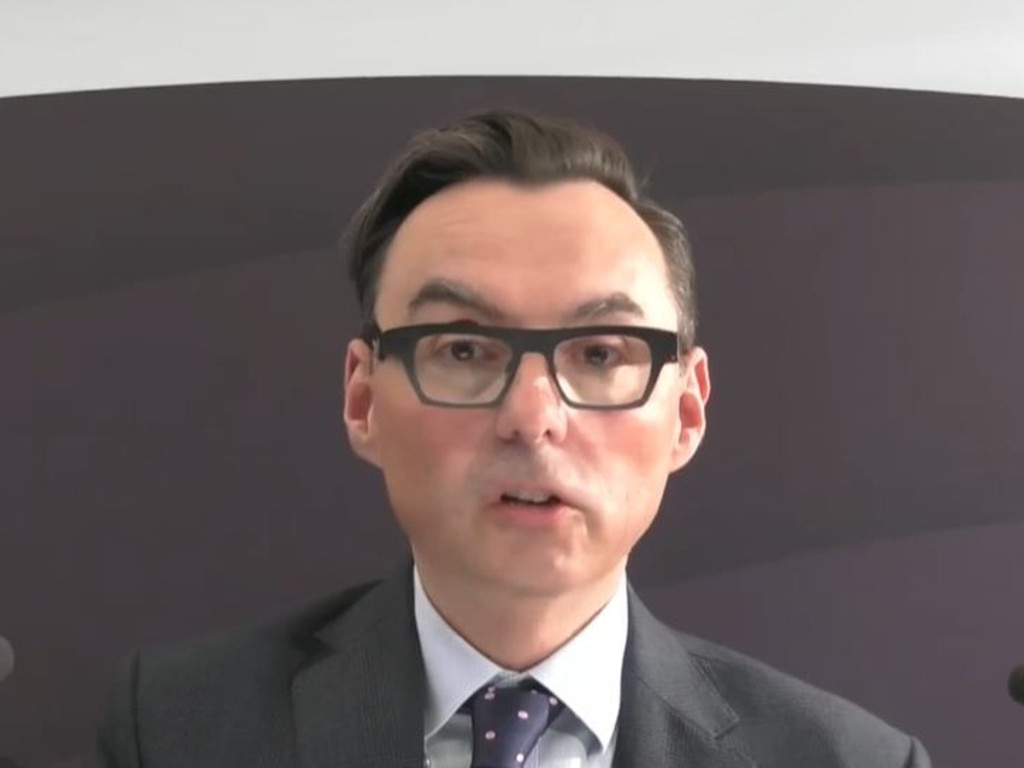
Counsel assisting the commission, Elizabeth Bennett SC, asked Mr Bullard about evidence provided last week by new executive director of Youth Justice Reform, Chris Simcock, who has oversight of the troubled Ashley Youth Detention Centre and the process of closing it by late 2024.
“He holds no particular training or qualifications in therapeutic decision-making, for example. Is that the kind of expertise that you would expect to have at that level?” Ms Bennett asked.
Mr Bullard said it was “absolutely acceptable”.
“The role of executive director youth justice is to co-ordinate the services and approaches on what are required to deliver on what we understand to be a contemporary approach for youth justice,” he said.
Mr Bullard also apologised to victim-survivor Robert Boost, who on Monday told the commission he was abused by a senior state school employee in the 1990s.
“I found listening to Mr Boost’s evidence very confronting,” he said.
“ … his trust was let down and I’m incredibly sorry for what he suffered at the hands of the perpetrator, and I recognise that we need to learn from that experience.”
Commission president Marcia Neave asked if there was any protocol on what information was provided to survivors, given Mr Boost’s alleged abuser “didn’t come back, but no-one really knew what had happened”.
Mr Bullard replied that it “does not sit well” that survivors were sometimes only told “the investigation is complete”, due to legislation.
The child sexual commission of inquiry will hold its final day of public hearings on Tuesday, before handing down its final report and recommendations in May 2023.
More Coverage
Originally published as Commissioners to consider whether there’s been a child abuse cover-up in Tasmania




